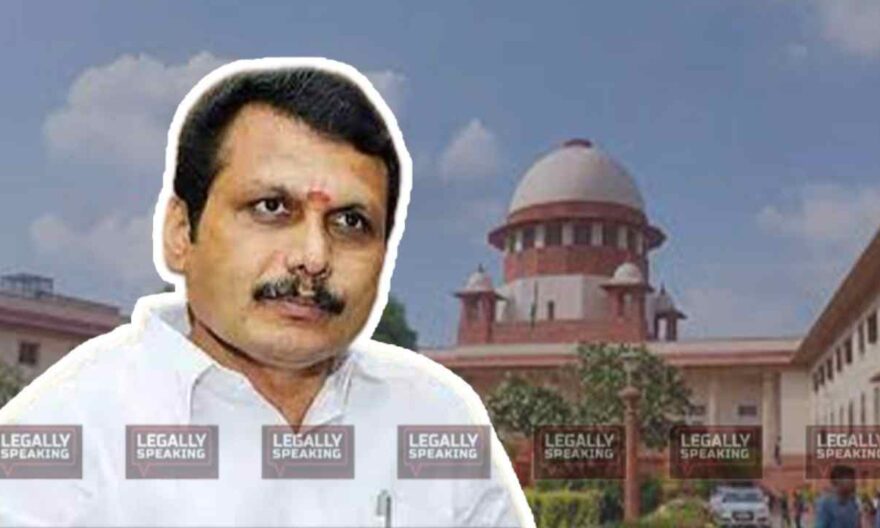
The Supreme Court on Wednesday deferred the hearing of a plea filed by the Enforcement Directorate (ED).
The plea argued that the Madras High Court had made an error by entertaining a habeas corpus petition filed by Tamil Nadu minister V Senthil Balaji’s wife.
A vacation bench comprising Justice Surya Kant and Justice MM Sundresh observed that the High Court had not yet provided its opinion on the matter regarding the maintainability of the petition. Therefore, the Apex Court bench decided to await the High Court’s order before proceeding with the case.
“Since both these issues are likely to be examined by the HC tomorrow or thereafter.. we deem it appropriate to post the special leave petition (SLP) for further hearing on the next date. High Court will proceed with the matter on merits,” the order stated.
During the hearing, the Top Court provided oral assurance to the ED that it would review the case if an order is issued that contradicts established principles of law or statutory provisions. The plea by the ED challenges a Madras High Court order permitting Tamil Nadu minister V Senthil Balaji, who is under arrest in a money laundering case, to be transferred to a private hospital for bypass surgery.
The ED’s plea argues that the High Court made an error by entertaining a habeas corpus petition filed by Balaji’s wife subsequent to his remand in custody via a judicial order. The ED claims that immediately after the sessions court issued the remand order, Balaji feigned illness and admitted himself to a hospital.
During today’s hearing, Solicitor General Tushar Mehta contended that the reasoning of the High Court contradicted three constitution bench judgments.
“The person has got himself admitted and he is undergoing some surgery etc.. I am challenging the order of remand which is made conditional and this makes the remand virtually meaningless,” the SG stated.
The Solicitor General (SG) further contended that this case establishes a problematic precedent where equality is perceived as unequal, implying that some individuals are more equal than others. Additionally, he emphasized that it would convey the message that the remedy of habeas corpus is applicable if an accused is taken into remand.
- Senthil Balaji, a minister in the Dravida Munnetra Kazhagam (DMK)-led government in Tamil Nadu, was arrested by the Enforcement Directorate (ED) in connection with a cash-for-jobs case. The charges against him trace back to his tenure as the transport minister during the All India Anna Dravida Munnetra Kazhagam (AIADMK) government from 2011 to 2015.
Shortly after his arrest, Balaji complained of chest pain and was admitted to a government hospital, where he underwent a coronary angiogram. The City Civil and Sessions Court in Chennai remanded Balaji to judicial custody until June 28 after assessing his health condition during a visit to the hospital.
However, the Sessions judge permitted Balaji to continue receiving medical treatment at the government hospital.
Meanwhile, Balaji’s wife, S. Megala, filed a habeas corpus petition before the Madras High Court challenging his arrest, which granted him limited relief. The High Court allowed him to be shifted to a private hospital for a bypass surgery.
Subsequently, on June 16, the Principal Judge at the City Civil and Sessions Court in Chennai, S. Alli, granted the plea filed by the ED seeking custodial interrogation of the minister but directed that the interrogation should take place at the hospital.
The ED then approached the Apex Court.




